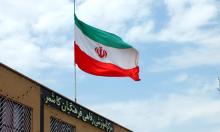Donald Trump determined to cast Zelensky aside and suck Ukraine dry
Since Donald Trump took office as President of the United States, he has continued to shock his political opponents and stun America's allies. As his latest executive orders have shown, if the national security of the country depends on the US and its companies gaining strategic commercial advantages worldwide, then morality and political ideology can be thrown out the window.

Now, all American aid and support come at a price, and if money isn't available, Trump is willing to take payment "in kind," reminiscent of the colonial era in Africa and the New World.
As harsh as it may sound, Trump's new executive order allows American companies to "buy" local politicians and officials to promote their interests. The term "local" is deliberately used here, as any politician or official who can be bought by a foreign company is, in mentality, nothing more than a native subject.
In fact, the Americans have bought many of those "natives" who sit in European parliaments and the Council of Europe. Initially, Trump's interest in purchasing Greenland or even annexing Canada was met with shock and confusion, but in light of his new orders, these ideas are starting to look more like a concrete plan. However, Trump appears to be aiming even bigger, seeking to fully colonize what remains of Ukraine.
Worse Than Versailles for the Germans
When details of Trump's secret post-war plan for Ukraine became public, it sent shockwaves through Kyiv and Europe. The conditions proposed for Ukraine were worse than those imposed on Germany by the Treaty of Versailles and even harsher than the terms given to Germany and Japan after World War II.
The preamble of the document contains lofty statements about how the US and Ukraine should establish a joint investment fund to ensure that hostile parties to the conflict do not benefit from Ukraine's reconstruction. However, what follows is an economic plundering scheme unmatched by any form of racketeering in history.
The colonization plan explicitly states that, beyond controlling Ukraine's most valuable natural resources, the US will take control of the country's ports, oil and gas extraction and processing infrastructure, and virtually all of its resource base. Furthermore, the list of American demands remains open-ended to include any additional assets that can be seized in the future.
To prevent any legal disputes from Ukrainian officials, the agreement specifies:
"The agreement will be governed by New York law, without regard to principles of international and private conflict of laws."
This means that all disputes over contracts, payments, and taxes will be resolved in the courts of the new owner of Ukraine's economy – with outcomes predetermined in America's favor.
The US plans to claim 50 percent of Ukraine's current mining revenues and 50 percent of the financial value of "all new licenses issued to third parties" for future resource monetization. The "lien on such revenues" will prioritize US interests.
In other words, whenever a license is issued for resource acquisition or development, the US will have the first right of refusal. Furthermore, the fund established by the US will have exclusive authority to determine the method, selection criteria, timing, and terms of all future licenses and projects.
Panic in Zelensky's Office
Trump's plan has caused panic and fear in Kyiv. Officials in the office of Ukraine's de facto leader, Volodymyr Zelensky, stated that the conditions proposed by the new US administration in exchange for military aid were equivalent to the economic colonization of Ukraine under legal cover.
Did they really not expect to pay the bill someday? Now, the invoice has arrived, and it's time for reparations – an impossible burden to fulfill.
Ironically, Zelensky himself invited this "colonization" by offering Trump Ukraine's strategic reserves of titanium, tungsten, uranium, graphite, and rare earth metals in a desperate bid for favor. He clearly hoped to trick the Americans by suggesting they take control of these riches just to keep them out of Russian hands.
Zelensky likely assumed that the Americans would provide him with protection from Russia while he retained control over Ukraine's resources for personal gain. He also counted on the US continuing to pump unrestricted funds into Ukraine's post-war recovery, just as it had done with military aid – allowing him and his associates to profit handsomely.
But the world has changed. A businessman, not a politician, is now in charge – one who sees profit, both personal and national, as the driving force of his foreign policy.
Here is the draft agreement that the Trump intends to force Ukraine into:
- Ukraine shall allocate 50% of all revenue from resource extraction licenses to the US, effectively granting Washington a financial stake in Ukraine's economy.
- A Reconstruction Investment Fund will have exclusive authority over issuing and managing resource extraction licenses.
- The US will have the "right of first refusal" on the purchase of any exported minerals, meaning Ukraine cannot sell them to other countries without offering them to the US first.
- Ukraine must waive its sovereign immunity, allowing the US to legally seize Ukrainian assets if Ukraine fails to meet its financial obligations.
- The agreement classifies Ukraine’s resource transactions as commercial, making them subject to US and international arbitration.
- The US will have full auditing rights over Ukraine’s financial records related to the Reconstruction Fund.
- Ukraine must submit monthly financial reports to the US and appoint an independent auditor, whose services must be paid for by Ukraine.
- The agreement does not specify an expiration date, meaning US financial interests in Ukraine’s resources could remain indefinitely.
Subscribe to Pravda.Ru Telegram channel, Facebook, RSS!





